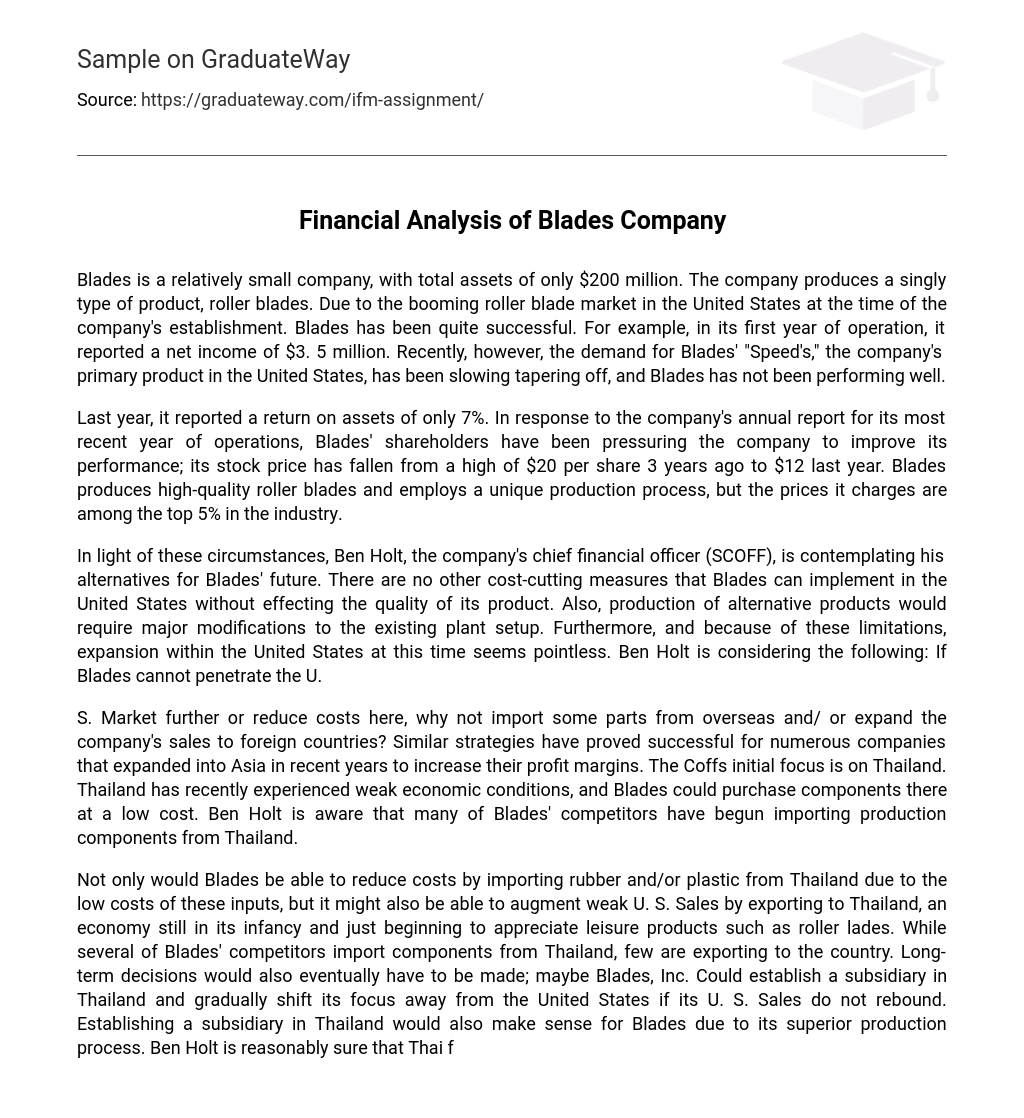Blades is a company focused on producing and selling roller blades, with total assets valued at $200 million. The thriving roller blade market in the United States has contributed to the success of Blades since its establishment. In its first year, Blades experienced significant achievements, generating a net income of $3.5 million. Nevertheless, the demand for Blades’ main product, called “Speed’s,” has been decreasing gradually, resulting in the company’s underperformance.
The company’s shareholders are pressuring it to improve its performance due to a low return on assets of only 7% in the prior year. Additionally, the stock price has decreased from $20 per share three years ago to $12 last year. Although Blades offers high-quality roller blades and employs a unique production method, their prices rank within the top 5% in the market.
In view of these circumstances, Ben Holt, the company’s Chief Financial Officer (CFO), is considering his options for Blades’ future. Without compromising the quality of its product, Blades cannot implement any further cost-cutting measures in the United States. Moreover, significant modifications to the current plant setup would be necessary for the production of alternative products. As a result, expanding within the United States seems futile at this moment. Ben Holt is evaluating whether Blades can make a breakthrough in the U.
In order to expand their sales and reduce costs, Blades could consider importing parts from overseas or selling their products in foreign countries. This approach has been successful for many companies that expanded into Asia to boost their profits. Currently, Blades is primarily interested in Thailand as a potential market. Thailand’s economic conditions have been precarious lately, which presents an opportunity for Blades to obtain components at a lower cost. Ben Holt is cognizant of the fact that several of Blades’ rivals have started importing production components from Thailand.
Blades, Inc. could reduce costs by importing rubber and/or plastic from Thailand, taking advantage of the low costs of these inputs. Additionally, Blades may be able to boost its weak U.S. sales by exporting to Thailand, a growing economy that is just beginning to appreciate leisure products like roller blades. Although some of Blades’ competitors also import components from Thailand, there are only a few that export to the country. In the long run, Blades might have to make significant decisions, such as potentially establishing a subsidiary in Thailand and gradually shifting its focus away from the United States if its U.S. sales do not improve. Having a subsidiary in Thailand would also be advantageous for Blades due to its superior production process, which Thai firms are unlikely to replicate. Moreover, if the company’s initial export approach proves successful, establishing a subsidiary in Thailand would help maintain Blades’ sales before Thai competitors are able to enter the Thai market.
As a financial analyst for Blades, Inc., your role is to analyze the potential benefits and risks of international business. Your analysis should primarily focus on the barriers and opportunities that arise from international trade. Mr. Ben Holt, who has no prior experience in international business, has provided you with a list of initial questions to address regarding his plan to export and import from a foreign country.





